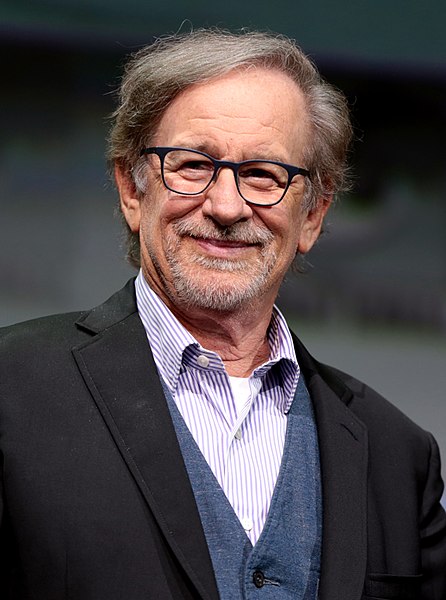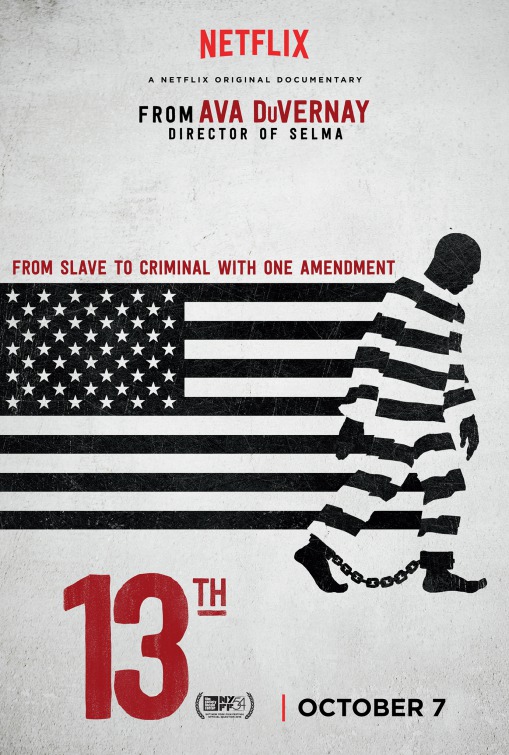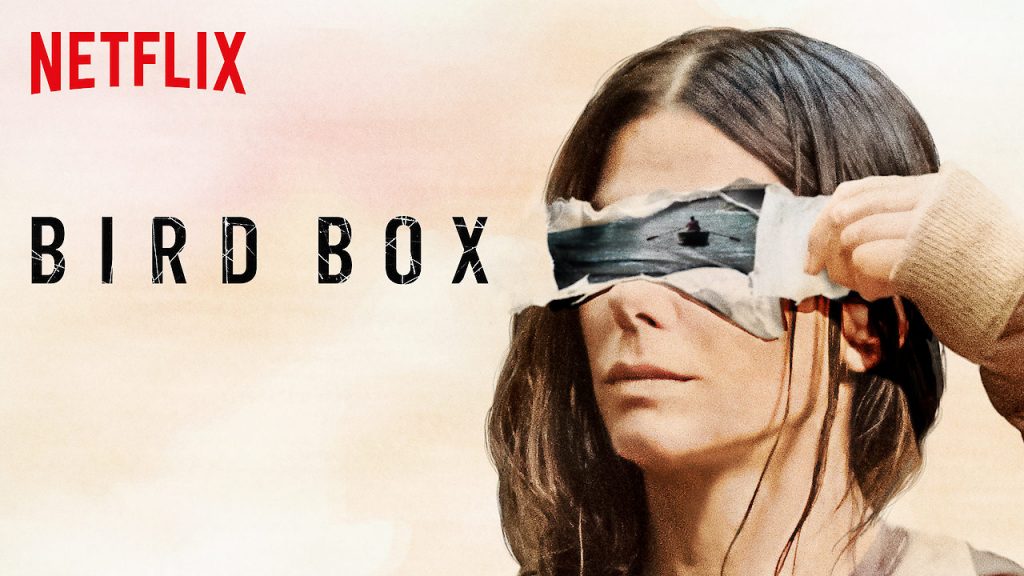So, let’s talk about movies. Specifically, let’s talk about the mildly confusing, and somewhat upsetting, news that Steven Spielberg is going to war with Netflix. Spielberg, word is, will lobby the Motion Picture Academy to change the rules covering the theatrical eligibility period for the Oscars. This is apparently in response to Netflix’s growing success at the awards. Spielberg is on record as saying he feels Netflix content is better suited to the Emmys because of how it’s delivered and this seems to be the next escalation of that belief. Like I say, it’s kind of a downer. Like discovering that the cool Uncle who leant you all those great movies thinks the internet is a fad and insists on calling it ‘electronic mail.’ I wanted to find out more about this, especially as the LOUD WORDS!/Content ratio on this story has been way off. Here’s what I dug up.
Spielberg’s point of view first off. He’s a passionate advocate for the movie theater experience. So much so he feels that if a movie isn’t designed to be seen in a theater, it’s not really a movie, hence the TV movie/Netflix/Emmy thing. That informs his argument now, which is that Netflix is essentially gaming or breaking the system by putting Oscar contenders in theaters for minimum runs to ensure their eligibility. And the thing is, he’s right and also wrong. Here’s why.
He’s right because Netflix is playing the system, in the exact way every distributor does but with vast amounts more financial muscle. That breaks down into two sub issues. The first is Netflix movies taking up space other films would notionally have. The second is the sense of Netflix being the millennials at the gate; kicking the doors in, squatting in a movie screen for a week and showing up to the Oscar ceremony in a hoodie. The only one of those problems which actually needs attention paid to it is the first and the rumored proposal would certainly do… something. Apparently, the plan is to extend the minimum eligibility requirement to a month in theaters. It’s not actually going to do anything substantial, because Netflix paid $100 million for another year of streaming Friends the same way you pay for a Freddo. But it’ll cost them money and that’s a line in the sand. Even if a big red N shaped tank is going to roll straight over it. As for the millennials at the gate, honestly, my one response is ‘Good.’ And to see if there’s a quick release switch.
Spielberg’s right about the theatrical experience too. I love the movies, even taking the eternal gamble of ‘Will the audience be terrible?’ into account. When I was a kid growing up on a tiny rock it was a magical wall that transported me to other places. When I was an adult who hated very nearly everything in his life it was an escape. Now, in my ongoing war against becoming a living deadline homunculus, it’s two hours off from my head. The movie theater is my church. It’s where my hurt gets healed. And the only reason I can manage that is the theater is ten minutes away on foot and costs five pounds a ticket. A lot of people aren’t as lucky. Spielberg doesn’t seem to be able to see past his privilege in that regard, and that’s the first place he’s wrong.
Privilege or idealism also seem to be at the heart of his second mistake. The idea of Netflix movies taking up space that ‘proper’ films deserve more on screens and at awards is a willful refusal to both acknowledge the minimal times they spend in theaters and to see how distribution actually works now. The movie industry, like every industry in this entirely-too-late-capitalist hellscape we drag ourselves over is very VERY broken and distribution is a perfect example of that. Revenues shrink, blockbusters turn a profit so that’s all theaters show and smaller movies get squeezed out long before Netflix drops its designated golden child for the year into a half dozen locations for a week. In those instances, it seems likely the changes Spielberg is proposing could damage the very movies he’d view as ‘deserving’ those slots more.
But while I don’t agree with it, I can see how, from Spielberg’s point of view, that looks profoundly unfair. Movies not designed for theaters taking up space in theaters. Taking spaces that other voices need and deserve more. Plus, this is just the beginning and if Netflix isn’t curtailed here, how far will it go? It’s a compelling mindset and one that a friend and colleague perfectly summed up by describing Netflix as a Super PAC. Their advertising spend for Roma was massive, possibly unlawful and makes his point. Money talks. Or in this case, screens.
On the plus side, the millennials may be at the gates, but they’ve brought some really cool movies with them. Netflix often enables risky productions to find a home and through that home some serious recognition. Ava DuVernay is a vocal advocate for them and it’s impossible to argue with her points. In particular that the only picture she’s directed that ever received wide international distribution was 13th, and it got that release through Netflix. She’s not alone either, and the platform has done a great job of baking diversity in at a programming and creative level in projects ranging from Sense8 to 3% and last month’s Oscar winner, Roma. Which, as director Alfonso Cuaron pointed out, would have struggled to find a home anywhere else.
The fact those movies are available at all is a game changer. The fact they’re available in your home is another and the closed captioning that’s available on them is a third. The existence of streaming services does an undeniably vast amount for accessibility in the exact way most theaters simply can’t. Or to put it another way, the theatrical experience loses it’s shine when only one screening has closed captions or is autism friendly. Even outside those concerns, parents have access to streaming libraries and a volume control meaning they can still interact with movies without getting a sitter. And a parking space. And tickets. Time and again it comes down to money, both personal and corporate. Corporate because Spielberg, with some justification, looks at Netflix as paying to play. Personal because sitter, transport and ticket are all costs that renders Spielberg’s beloved theaters from an affordable necessity to an occasional luxury for most of us.
But, to quote Billy Crudup in the best Mission: Impossible movie, it’s complicated. Because while this plays more than a little like cloud shouting on Spielberg’s part, Netflix are far from the wounded innocents they’re being played as here by any means.
First off, they did were a massive part of the death of the DVD rental market. On the one hand, industries evolve. On the other, as a former retail worker myself, that doesn’t make redundancy suck any less. Especially as Netflix’s own DVD rental service is, somehow, still going.
Then there’s the odd way they pay for movies. Or rather, when they pay for movies. Syndication and payment splits between initial costs and box office take are commonplace everywhere but Netflix. Instead of paying up front and then after the fact, they pay more than most up front. The upside to this is if your movie doesn’t perform you’ve still got a payday. The downside is that if your movie performs brilliantly, you’ve…got the same payday. It’s less of a gamble but also less of a jackpot. It’s also worth noting there’s repeated anecdotal evidence that the residuals actors and crew get from Netflix are very, very low. Like freelancer journalist level low.
Not to mention the organizations’ weirdly cagey and almost certainly gamed ratings. And the counter-intuitive gap between Daredevil’s ratings and the decision to cancel it. And the intimidatingly brilliant figures BirdBox figures were so great people were openly skeptical. Remember, Netflix is a venture capital backed company. That means it’s in their interests to look more valuable than they are. It also means, sometime soon, the people who put the initial money up will want a return and if that return isn’t high enough, things are going to go badly. Because in the end, with venture capital backers, they always do. As a mildly chilling side note to this, Netflix paid very close attention to what choices people made through Bandersnatch and they aren’t saying how long they’re holding onto the data or why. All of which means even if Netflix isn’t the bad guy, and on at least two fronts it absolutely is, it certainly understands a lot of the bad guy’s viewpoints and feels we should hear him out.
So, we opened this piece with: Cool Uncle Fights The Internet which is a headline no one wants to read. Here’s what it looks like now:
Cool Uncle Fights What He Thinks Is The Good Fight For The Wrong Reasons Against Morally Bankrupt But Creatively Game Changing Mega-Corporation
It’s not punchy but it’s way more accurate. Discriminating against ‘TV movies’ doesn’t hold weight anymore and hasn’t for this entire century. Netflix isn’t going anywhere even if the Academy shuts it out of the Oscars. More importantly, for Spielberg to focus on this is inherently conservative and backward facing at the exact time when the #metoo and 4% Challenge movements could do so much more with someone like him in their corner. Hell even if he didn’t want to throw his power behind them, the best way to save the theatrical experience he loves so much is to help change the economic model behind movie theaters to reflect the changing way people watch films. Build the future, don’t defend the past. To be clear, I think the fact he wants to protect movie theaters is admirable. But he’s in the wrong field, he’s yelling at the wrong people and he’s facing the wrong way.
Then there’s Netflix. The simple fact they’re a global entertainment mega-corporation should make them basically impossible to back or trust but we live in a world of occasionally slumbering Corporate Kaiju whose tectonic movements affect us like the weather and offer us about the same control so Cultural Stockholm Syndrome is very much a thing. I love a lot of what they do. I hate a lot of how they go about doing it and perhaps if this fight indirectly makes them more honest, that would be a good thing. But I can’t help feeling there are better, more necessary fights for everyone involved. And the time to have them is long overdue.
Sources:
IndieWire
https://www.indiewire.com/2019/02/steven-spielberg-theaters-over-streaming-netflix-1202045064/
https://www.indiewire.com/2019/02/steven-spielberg-vs-netflix-oscar-academy-wars-1202047846/
https://www.indiewire.com/2019/03/netflix-responds-oscars-backlash-steven-spielberg-rule-change-1202048493/
Variety
https://variety.com/2019/tv/news/bird-box-ratings-netflix-nielsen-1203102316/
https://variety.com/2018/scene/news/alfonso-cuaron-seeing-roma-in-theaters-home-netflix-1203086472/
https://variety.com/2019/film/news/netflix-steven-spielberg-oscars-1203154092/
https://variety.com/2019/film/news/steven-spielberg-academy-netflix-oscar-competition-1203153872/
https://variety.com/2019/film/news/theatrical-netflix-academy-rule-change-steven-spielberg-1203153926/
Wikipedia
Others
https://www.cheatsheet.com/entertainment/steven-spielberg-netflix-oscars.html/





